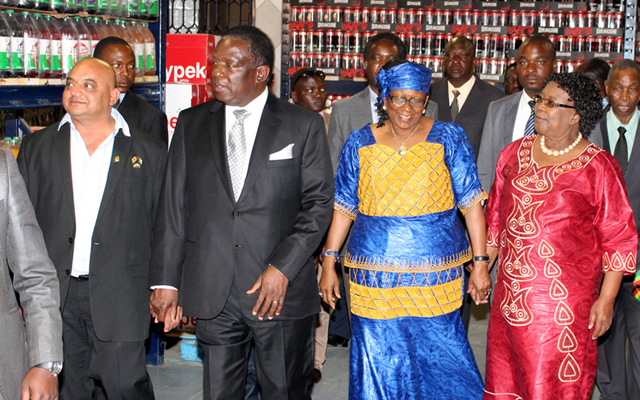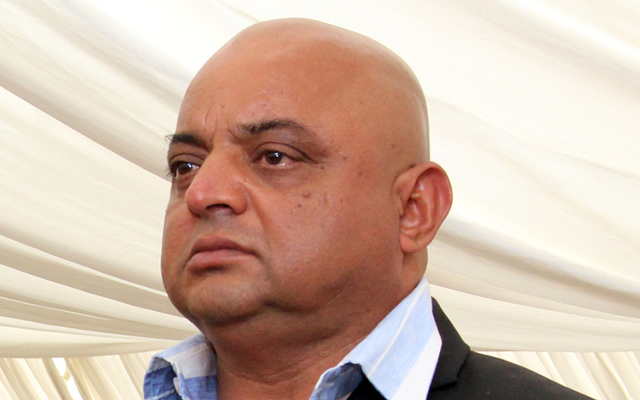‘Source, stock locally produced goods’


Vice-President Emmerson Mnangagwa (second from left) is being led on a tour of the shop by businessman Raj Modi (left) after the official opening of Wholesale Centre Liquor Hub in Bulawayo yesterday. Among the dignitaries are the Minister of Public Service, Labour and Social Welfare Prisca Mupfumira (in blue) and Minister of State for Bulawayo Provincial Affairs Nomthandazo Moyo
Prosper Ndlovu Business Editor
VICE-President Emmerson Mnangagwa has called on businesses in the country to procure and stock locally produced goods to support domestic industrial growth and foster vibrant economic recovery.Officially opening the Raj Modi-owned new Wholesale Centre Liquor Hub enterprise in Bulawayo yesterday, the Vice-President also implored local industries to improve product quality to be able to compete with international brands.
“What’s vital to understand is that the decision of where and what goods to source rests with the retailers. Consequently, what goods will eventually be on the shelves and thus land in the consumer basket largely depends on the decision of such retailers,” said VP Mnangagwa.
“I therefore want to encourage Wholesale Liquor Hub and all retailers in Zimbabwe to source and stock locally produced goods, wherever possible.
“Similarly, I believe that on their part, local producers should endeavour to comply with quality and delivery requirements of retailers, since trade is a mutually beneficial process.”
Zimbabwe is battling to tame growing trade deficit, which has clocked $16 billion in the last five years – due to the influx of cheap imports.
The Zimbabwe Statistics Agency (Zimstat) indicates that trade deficit widened to $3,3 billion in December last year from $2,97 billion the previous year.
Economic analysts blame the widening trade deficit on uncompetitive price modelling in which locally produced goods are relatively expensive compared to imports.
The government, through the Ministry of Industry and Commerce, has moved to curb cheap imports by setting up a National Competitive Commission, which seeks to realign pricing and enhance domestic industrial competitiveness.
The Reserve Bank of Zimbabwe is also on a crusade urging businesses to slash prices to increase market volumes and facilitate recovery.
While several businesses have heeded the call, captains of industry cite high production costs as a major barrier and have called on the government to also reduce utility charges, taxes and other tariffs.
The Vice-President said it was unfortunate that some local firms were found wanting in terms of reliability of supplies and quality of products to meet retailers’ expectations.
He said the retail sector was an important link in the supply chain of goods and services in the country.
The VP said departmental stores in Zimbabwe should be supported as they remain an important channel for producers, particularly for the small to medium sized companies, to distribute their products to end consumers.
“It needs to be highlighted that the retail industry is dependent upon the general socio-economic state of the nation, its level of employment, income, purchasing power and the level of education,” he said.
Vice-President Mnangagwa said as the economy grows and people’s earnings rise, the retail sector will also expand due to increased demand for goods.










Comments